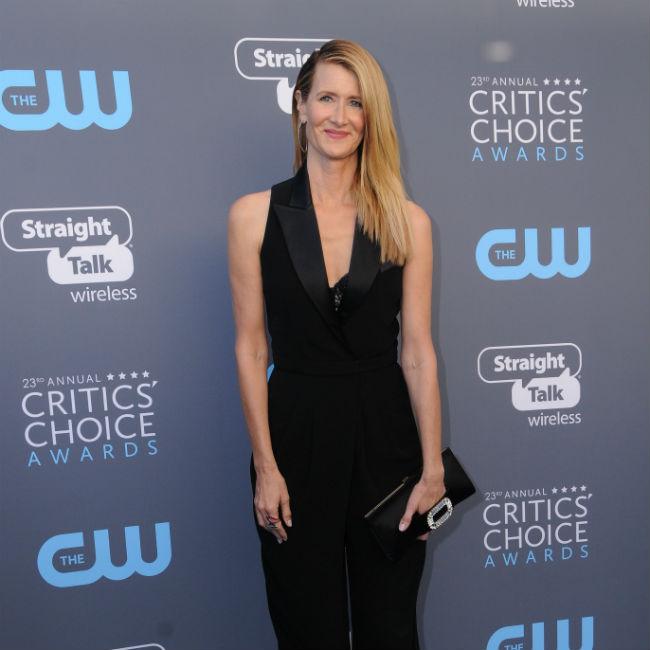Laura Dern felt a "moral obligation" to "get it right" with ‘Trial By Fire’.
The 52-year-old actress plays Elizabeth Gilbert, who became an advocate for Cameron Todd Willingham (Jack O’Connell) in director Ed Zwick’s true life tale and though she didn’t get to meet the playwright before getting into character, she was grateful that she engaged in a "great deal of correspondence" with her and was able to offer support and guidance on the story because of the added pressure of playing a real person.
She said: "There’s a moral obligation with a living person that you want to get it right.
"You know that they’re going to understand at some point that there is some license of invention because you’re having to presume how someone else feels, and sometimes even your family can’t know that. Liz Gilbert was patient [with that], thank god, and she’s also a playwright, so she really understands how it works, but she also understood my intent, Jack O’Connell’s intent and Ed Zwick’s intent.
"So, with that generosity, she opened her heart to me and we had a great deal of correspondence. It’s hard on her to travel, and we had never met; we had only had numerous calls and emails and Skypes and got to know each other in that way.
"Only after the film did I spend time with her in person. But she was amazing, and most notably, she gave myself and Jack, ultimately, all of the letters between she and Todd, some of which you hear in the film, to help us the track the relationship and how it developed and her fight to expose injustice."
One of Laura’s biggest initial struggles with the role was the way Elizabeth was seen as just a "good person" so she was thankful that she was able to bring some "normality".
She added in an interview with The Hollywood Reporter: "You know, it was my only problem with the script. And I only say this because Ed said it in an interview the other day, and I thought it was fair, that he and Geoffrey Fletcher have such respect for her and the way to pay homage to her, they felt, was to present the level of compassion she holds.
"But it was seeping into informing the scenes, and kind people do s***ty things, and noble people are complicated, and that’s the thing that interests me about acting.
"And so with Liz’s guidance, she let us go on a journey of mining some of her emotional life, her parenting life and her complicated and appropriate feelings in and around her own profiling of Todd.
"She learned about this program of letter-writing to people on Death Row, and as she said, which I thought was really funny, ‘It was one of those moments where I was like, "Okay, I’ll be a good person, I’ll be amazing and I’ll do this thing that’s an act of service to feel better about myself, or whatever people do." ‘
"I love that she accessed, for me, a commonality to it. But then you’re inside it, and the individual becomes someone close to you.
"In Ed’s beautiful willingness to allowing that to evolve, we tried to find some commonality, some normalcy, to who she is, versus Mother Theresa.
"Because not only is she not, and didn’t want to be perceived as such, but the goal is to influence all of us toward a small act of kindness, because that may be all it takes to change lives, to change the justice system, to impact your own life. That’s definitely the hope."
Laura Dern’s role responsibility

